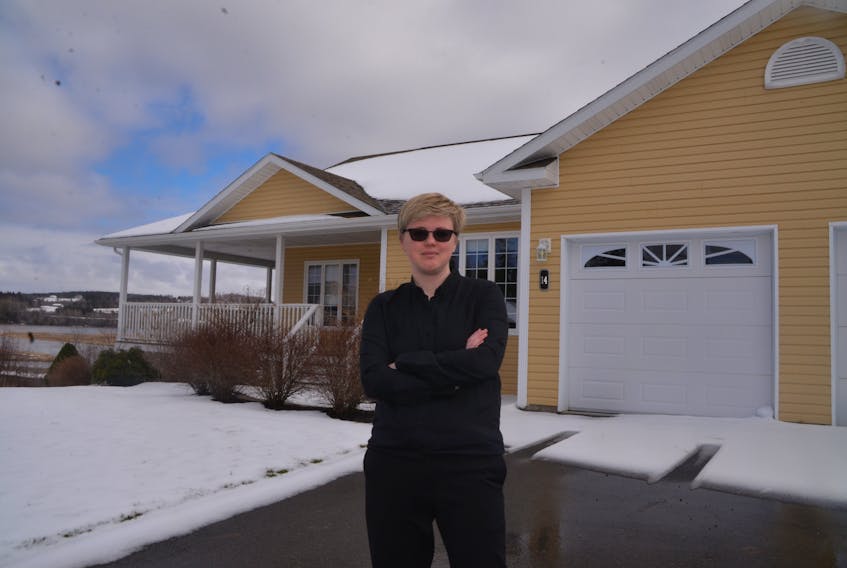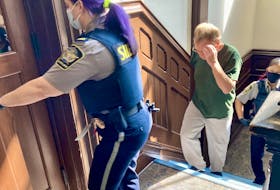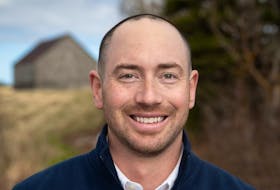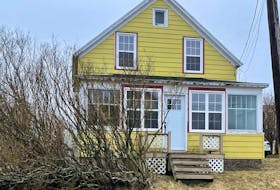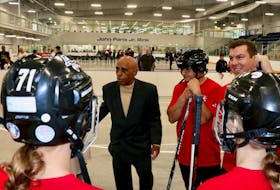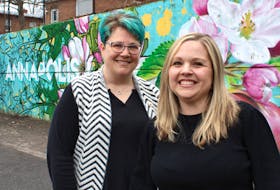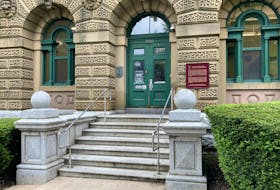ANTIGONISH, N.S. — Karen Blair walked out to the end of her driveway at 7 p.m. on Friday.
She looked around the cul-de-sac and didn’t see anyone.
Blair’s thought was not that her neighbours in Antigonish should be participating in the vigil for the victims of the recent killings.
It was for how digital touch falls short.
“If you go out on the porch and there’s no one else there, it only reiterates that you’re alone,” said the assistant psychology professor at St. Francis Xavier University.
“When you want that connection the most and you’re denied it, it can make it worse … No matter what we come up with, it’s not going to be the same as a hug.”
Blair is watching herself and all of us.
"People literally hugging strangers and crying on each others' shoulders plays a big role in finding closure or seeing some positive, that in the wake of these horrible events you often see the best of humanity,"
- Karen Blair
A month ago, she and Debby Herbenick, a psychology professor at Indiana University, launched The COVID-19 Interpersonal and Social Coping Study. The study sees volunteers answer a battery of mental health and well-being questions related to the impact of COVID-19 social distancing precautions.
They’re also invited to complete shorter diary entries each evening.
“Normally our relationships – our romantic and general contact – are really important to our mental health,” said Blair.
“Even a short conversation with the person who gives you a coffee can play big part in your overall well being. Are people who are usually very connected noticing a bigger effect because there is a bigger drop in social contact? What are the risk factors? What promotes resilience? What coping measures work better?”
Nine hundred people have signed up to participate from around the world.
About 150 of them are from this province.
Then came the killings of April 18 and 19.

And Blair’s COVID-19 study blurred into her previous work examining the mental health impacts on local populations following mass killings in 2016 at the Pulse Nightclub shooting in Orlando, in 2018 at a Pittsburgh synagogue, and in 2019 at a Christchurch, New Zealand, mosque.
In the diary entries that have come in over the past week, she has seen us wrestling with the horror of the event while at the same time being denied the mechanisms humanity has always turned to for comfort.
“People literally hugging strangers and crying on each others' shoulders plays a big role in finding closure or seeing some positive, that in the wake of these horrible events you often see the best of humanity,” said Blair.
“We had the beautiful vigil online but I’d imagine it didn’t feel the same. For people living alone, it may have felt worse. To watch that and not be with anyone else.”
It’s been a hell of a year.
On Jan. 8, the Iranian military accidentally shot down a Boeing 787 killing all 171 aboard.
Fifty seven of them were Canadian citizens.
Then came the pandemic.
Then, the biggest mass killing in Canadian history in the bucolic backdrop of rural northern Nova Scotia.
As the news cycle moves from one catastrophe to another, Blair warns that those left behind feel the caprice of society's wandering sympathy keenly.
“When people get left behind, it complicates their grief,” said Blair.
“Then, also, people feel really guilty about how upset they are when they are not someone who lost someone themselves. They need to know that that’s OK. It’s a function of their normal empathy.”
Though she has 17 students helping her read and understand our diaries, the sheer amount of entries pouring in will take years to process.
Ultimately she expects the project to yield a book analyzing this historic time as previous social scientists have done by poring over the diaries left from the First and Second World Wars.
In the meantime, Blair is both a scientist and one of us.
And on Friday, she stood at the end of her driveway in Antigonish needing a hug.

